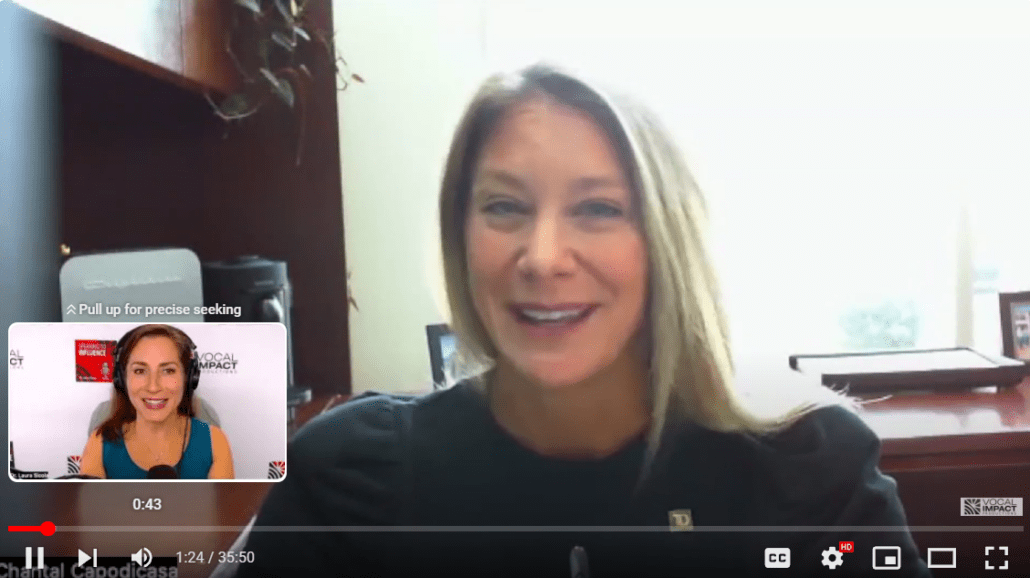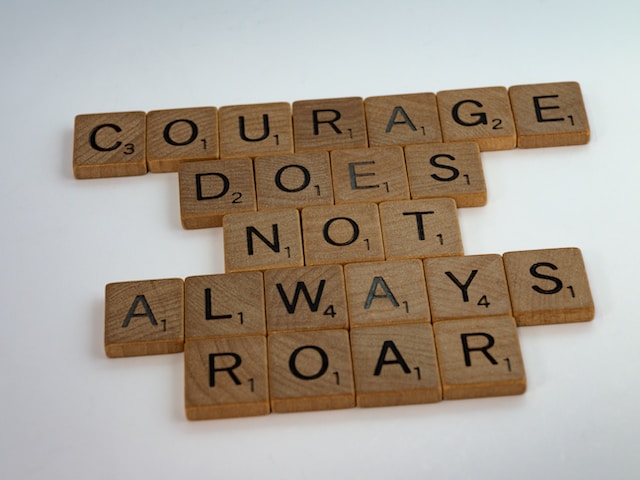It’s not something I frequently get the chance to do, but this was a rare opportunity to watch a client in action.
I had permission to sit in on a division meeting to watch the dynamics of the event, and the culture of the group, first hand.
From my chair in the corner, an obvious but odd pattern quickly emerged.
The leaders were all sitting down at one end of an impossibly long conference table, and all the analysts were at the other end.
But the weird part was that most of the analysts just stayed silent unless invited to speak. When they did respond, they just hovered over their papers, mumbling almost inaudibly to themselves.
A few days later I met with Sam, one of my clients in the meeting – and more specifically, one of the mumbl– I mean, analysts.
Sam was brilliant but shy, uncomfortable in the spotlight, with a very soft speaking voice, which was probably a product of both nature and nurture.
When I asked him how he thought the meeting went – specifically, his part – he shrugged and said, “Fine, I guess.”
I mentioned that, sitting on the far side of the room from him in the group meeting, I couldn’t make out a lot of what he was saying.
“It’s just my voice,” he said. “I’ve always had a soft voice.”
“Here’s the thing,” I said to him. “You are really good at your job, aren’t you?”
He nodded.
“And you want to be recognized and appreciated for your expertise, don’t you?”
He nodded again.
“And you want to be seen as someone who has real leadership potential, right?”
“Yes,” he said.
“The problem is that when you only speak loudly enough to hear yourself, or maybe for one or two people nearby to hear you, the message you are really sending is that you don’t truly believe that your contributions have value.”
He looked at me, silently, processing.
“But the worst part,” I continued, “is that the message everyone else is sending back to you, in their polite silence, is: ‘We agree. We don’t think what you contribute will have any real value either; if we did, we’d ask you to speak up so we didn’t miss anything important!’”
The next week I was back on site and bumped into Jake – another team member – in the hall.
“Did you hear about Sam?” he asked with a smile.
“No,” I responded, curious. “What happened?”
Jake explained: “At the department meeting this week, when it was Sam’s turn, he pushed his seat back, stood up, and spoke really loudly. Even the boss looked surprised, and I heard him say to (the guy) next to him, ‘What got into him?”
Later that day I met up with Sam.
“Jake told me about how you stood up and spoke up in the last meeting. What changed?” I asked.
“Well,” Sam said, “I thought about what you said, and the fact is, I worked really hard on that data, and it was important. So I wanted to make sure everyone heard and understood it.”
And that was the beginning of Sam’s upward career trajectory.
There are many reasons why some people habitually hesitate to speak up when they otherwise have the opportunity to do so. Usually it is some combination of perfectionism/lack of self confidence, and fear of judgment: They project an excessive degree of risk onto the situation, and fear that if they can’t offer THE perfect answer or solution, it will result in some sort of shame, failure, or other repercussions.
Yet more often than not, when they do choose to speak up, not only is there NOT any negative consequence, but most people are actually glad that they did!
This week on the Speaking to Influence, Chantal Capodicasa, Senior Vice President of commercial banking at TD Bank, talks about how she found the courage to speak up in defense of her team and challenge a directive in a time of crisis.

Over the course of our conversation, Chantal peels back the curtain to explain leaders’ perspectives on things like:
- What leaders really think about participation in discussions, and what they are looking for from you
- How speaking up in a meeting, even when it’s just to ask a question or clarify something, is beneficial for you and your team.
- How storytelling in an interview can show you have the ‘It’ factor employers are looking for
- How it took her being open about a family member’s battle with cancer for her team members to be able to show up for her in ways she didn’t realize she needed.
Listen to the full conversation here or watch it on YouTube here.
And remember my mantra: Find your voice, find your power!



